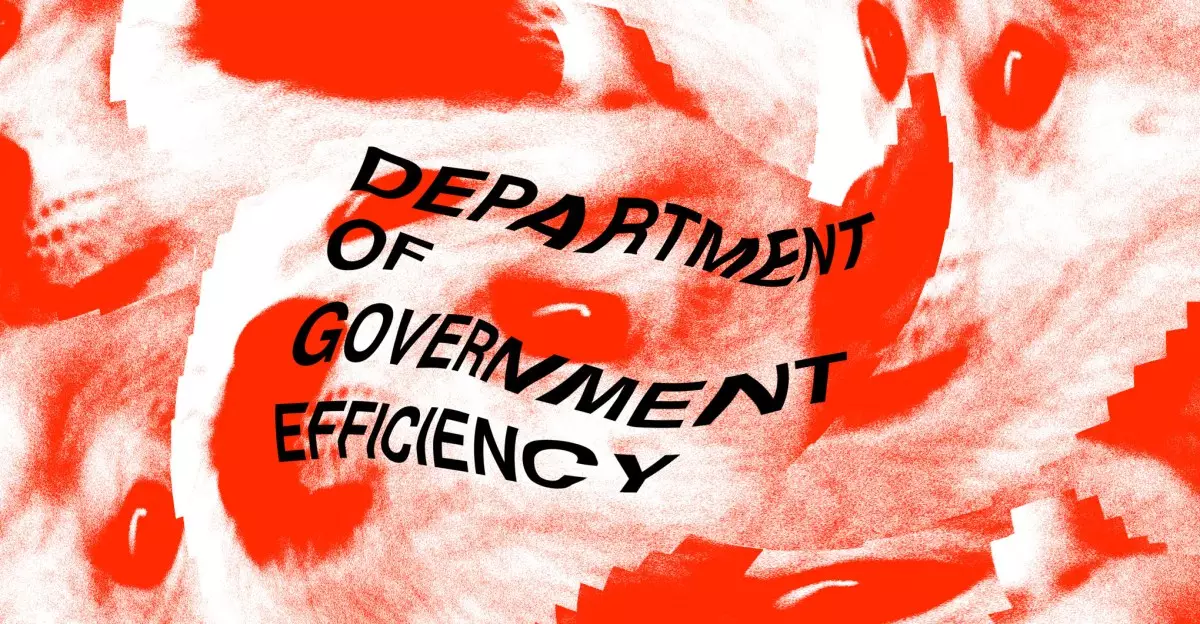The emergence of technology within government agencies often evokes a mix of excitement and skepticism; innovations hint at greater efficiency but can also raise serious concerns regarding privacy and management capability. Recently, the Department of Government Efficiency (DOGE), a brainchild of Elon Musk, announced its intention to create a so-called “mega API” aimed at streamlining access to Internal Revenue Service (IRS) data for third-party developers. This ambitious initiative, as reported by Wired, has sparked numerous discussions—both supportive and critical—regarding the implications of such a venture.
Potential Pitfalls of a Compressed Timeline
The DOGE’s timeline for executing this project is astonishingly tight, with completion aimed for within just 30 days. This seems like an unrealistic expectation considering the complexity of IRS data. Many experts are outright skeptical. An IRS employee has notably stated that such a hastily constructed system could potentially “cripple” existing operations. The question lingers: how can a project of this scale be anticipated to succeed under such a time constraint? Rapid rollouts may lead to catastrophic oversights, particularly when dealing with sensitive taxpayer information, and this race against the clock does not inspire confidence in the ability to safeguard the public’s data.
Cloud-Based Concerns: Is Data Accessibility a Double-Edged Sword?
By utilizing a cloud platform, particularly a third-party one, the potential for accessibility rises exponentially. However, this shift brings with it a labyrinth of regulatory and ethical concerns. Collaboration with companies such as Palantir—a firm often scrutinized for its surveillance capabilities—exacerbates these worries. While enabling more efficient data access can promote transparency and improve service, the corresponding question of control must not be overlooked. The very essence of IRS data, which encompasses individual financial histories, necessitates a careful balance between accessibility and security.
The Role of Young Innovators: A Question of Expertise
Interestingly, two relatively young figures, Gavin Kliger and Sam Corcos, are navigating this endeavor. With limited experience in government, particularly the intricacies of the IRS, one must ponder the efficacy of entrusting such monumental responsibilities to them. Critics argue it’s dangerous for unseasoned operatives to dictate the design and approach to something as complex as tax data management. The lack of experience may leave significant gaps in understanding how best to harness such data responsibly.
Political Tensions Surrounding Tax Data Access
The political backdrop to this initiative adds further complications. Reports of Trump administration officials attempting to leverage IRS data as a tool for government efficiency and immigration enforcement lend an unsettling aura to this project. With lawmakers like Senator Ron Wyden advocating for the protection of taxpayer information, the tension between efficiency and ethical governance becomes pronounced. The very desire to cultivate a more efficient government must not come at the cost of the foundational principles of privacy and taxpayer rights.
This ongoing saga serves as a reminder of the dual-edged nature of technological advancement within government—every innovation carries both potential and perils, requiring keen oversight and thoughtful engagement.

